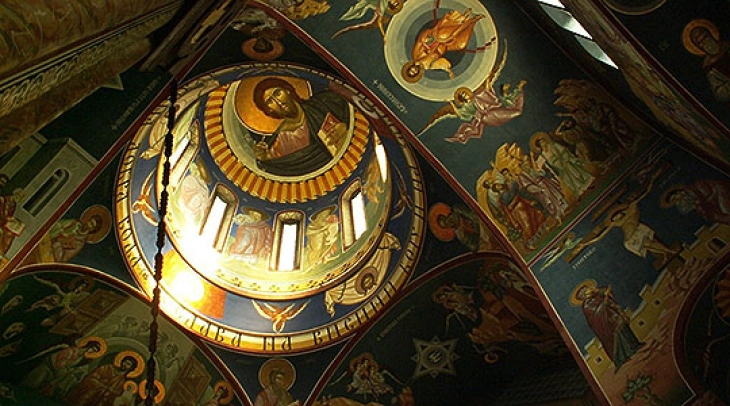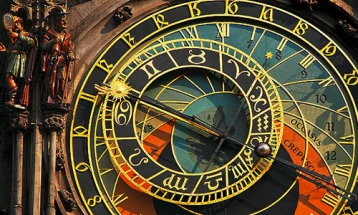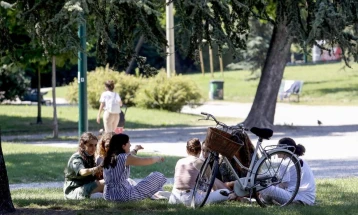
1 August 2024 (MIA)
Macedonian Orthodox Church Calendar
The Venerable Female Macrina
Macrina was the eldest sister of St. Basil the Great and St. Gregory of Nyssa. As a young virgin, Macrina was betrothed to a nobleman. When her betrothed died, Macrina vowed never to enter into marriage saying: “It is not right for a maiden once betrothed to a young man to seek another: according to the law of nature there must be only one marriage as there is but one birth and one death.” She further justified this by her faith in the resurrection considering her bridegroom, not dead but alive in God. “It is a sin and a shame,” says Macrina, “for a wife not to safeguard her faithfulness when her husband travels to a distant land.”
After this, together with her mother, Emilia, she received the monastic tonsure in a convent, where they lived a life of asceticism with other nuns. They lived from the labors of their hands devoting a greater part of their time to godly thoughts, prayer and the constant uplifting of their minds to God. In time her mother died and, afterward her brother Basil. Nine months after the death of St. Basil, Gregory came to visit with his sister and found her on her deathbed.
Before her death, Macrina lifted up her prayers to God: “You, O Lord, Who gives rest to our bodies in the sleep of death for a time, will again awaken them [the bodies] at the last trump. Forgive me and when my soul divests itself of its bodily attire and presents itself before You, pure and without sin, grant that it may be as incense before You.” After that she traced the sign of the cross on the forehead, eyes, face and on her heart and gave up her soul. She found rest in the Lord in the year 379 AD.
Catholic Calendar
St. Alphonsus
St. Alphonsus was born in the village of Marianella near Naples, Italy, Sept. 27, 1696. At a tender age his pious mother inspired him with the deepest sentiments of piety. The education he received under the auspices of his father aided by his own intellect, produced in him such results that at the early age of sixteen, he graduated in law. Shortly after, he was admitted to the Neopolitan bar. In 1723, he lost a case, and God made use of his disappointment to wean his heart from the world. In spite of all opposition he now entered the ecclesiastical state.
In 1726, he was ordained a priest. He exercised the ministry at various places with great fruit, zealously laboring for his own sanctification. In 1732, God called him to found the Congregation of the Most Holy Redeemer, with the object of laboring for the salvation of the most abandoned souls. Amid untold difficulties and innumerable trials, St. Alphonsus succeeded in establishing his Congregation, which became his glory and crown, but also, his cross. The holy founder labored incessantly at the work of the missions until, about 1756, he was appointed Bishop of St. Agatha, a diocese he governed until 1775, when broken by age and infirmity, he resigned this office to retire to his convent where he died.
Few saints have labored as much, either by word or by writing, as St. Alphonsus. He was a prolific and popular author, the utility of whose works will never cease. His last years were characterized by intense suffering, which he bore with resignation, adding voluntary mortification to his other pains. His death occurred at Nocera de Pagani, Aug. 1, 1787.







